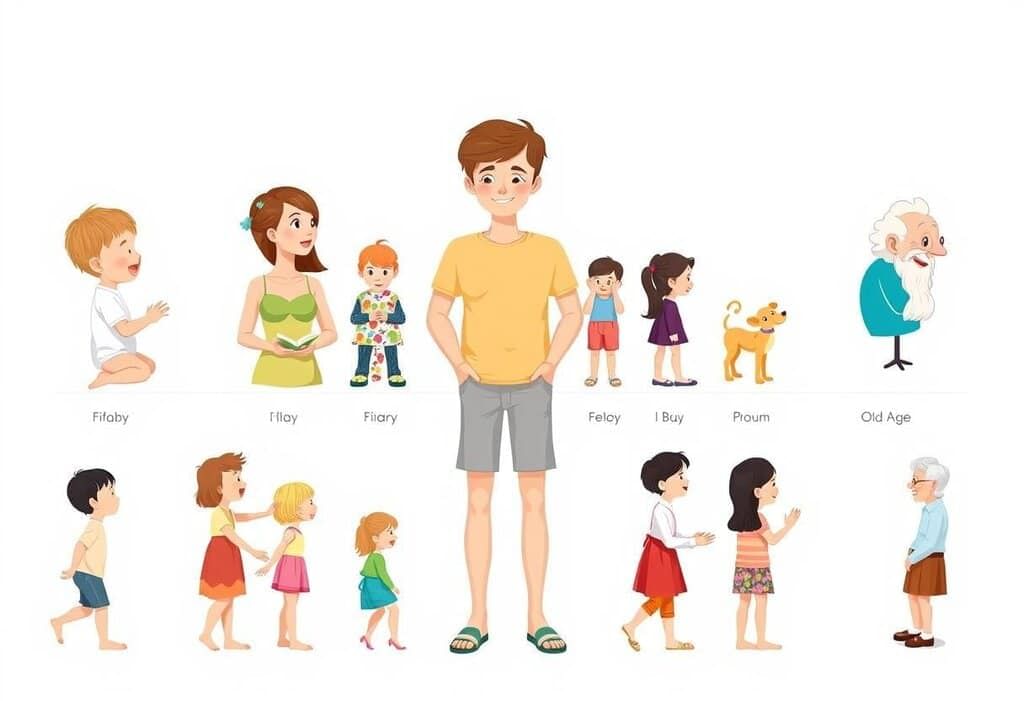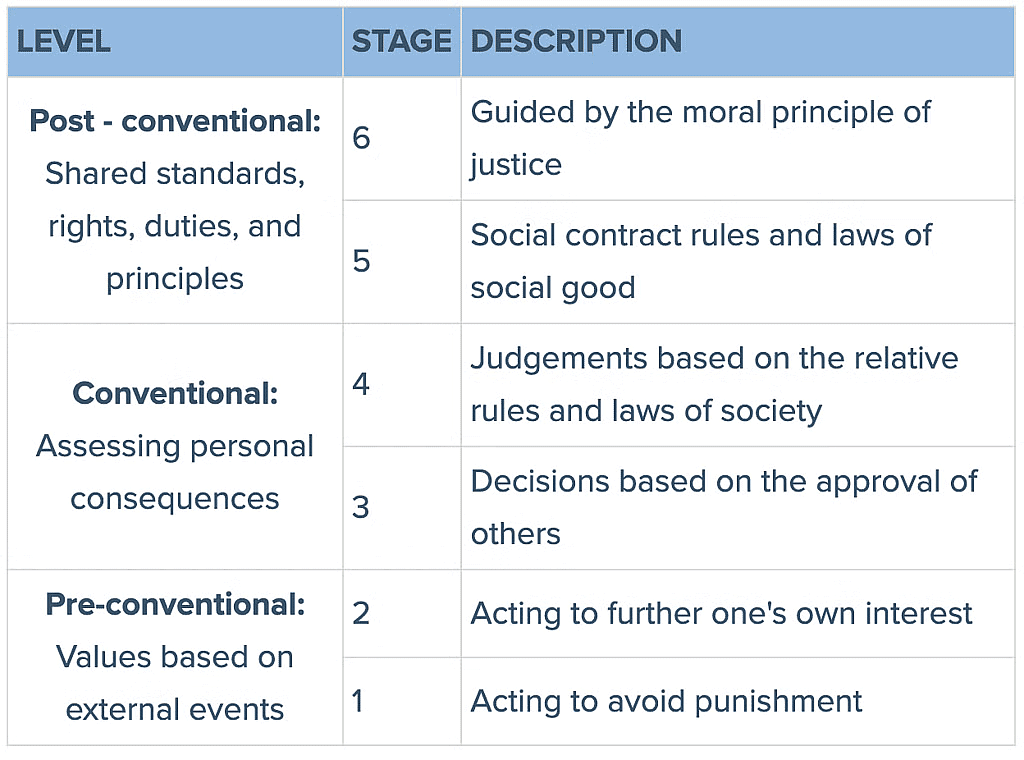Theories of Socialization | Child Development and Pedagogy for CTET Preparation - CTET & State TET PDF Download
What is Socialisation?
 Family and Peers Interaction
Family and Peers Interaction
- Socialisation is an ongoing process that plays a crucial role in helping individuals integrate into society and develop a sense of belonging.
- It ensures that individuals learn and adopt the values, norms, and customs necessary for the smooth functioning of society.
Socialisation is a continuous process through which individuals learn and adapt to the values, norms, and customs of their society. It is essential for ensuring that people can live together harmoniously and contribute to the smooth functioning of their community.
Types of Socialisation
Primary Socialisation
- Occurs from early childhood to adolescence.
- Individuals learn fundamental skills and values primarily from their family, siblings, and peers.
- A crucial aspect of this stage is understanding what behaviours are considered 'right' and 'wrong.'
Secondary Socialisation
- Begins in adulthood and continues throughout a person's life.
- Involves influences from outside the family, such as schools, workplaces, and other social institutions.
Cognitive Theories of Socialization
Understanding the theories that explain the impacts of the socialization process is crucial.
The Formation of Self
- According to C.H. Cooley, our sense of self emerges from our interactions with others. This occurs within primary and secondary groups during the socialization process, laying the groundwork for our identity.
- C.H. Cooley emphasized the role of social interaction in shaping one's identity. During interactions, individuals consider how others perceive their actions. This reflection helps individuals construct a self-concept. Cooley termed this phenomenon the "looking-glass self," where individuals imagine how they appear to others and how they are perceived.

- This theory suggests that our self-concept is shaped by socialization, leading individuals to adjust their behavior based on how they believe others perceive them.
G.H. Mead's Theory
 Social Self Development
Social Self Development
G.H. Mead described the process involved in the development of the social 'self.' Mead's theory revolves around the concepts of 'I' and 'me'.
- G.H. Mead: The concept of 'I' represents the innate, unsocialized aspect of an individual, while 'me' symbolizes the socialized part that aligns with societal expectations.
- Unsocialized vs. Socialized: 'I' allows for spontaneous expression and creativity, while 'me' is shaped by learned behaviors and societal norms, reflecting others' expectations.
- Development of Self: The distinction between 'I' and 'me' forms the basis for the development of the self, which occurs through stages of imitation, play, and games.
Stages of Self-Development
 Child Role Play
Child Role Play
- Imitation Stage: In the initial stage of self-development, young children mimic the actions of their peers and caregivers. At this point, they may not fully grasp the meaning behind these actions, but they imitate them nonetheless. This stage is crucial for the development of basic social and behavioral patterns.
- Play Stage: As children progress, they enter the play stage, where they start to adopt specific roles, such as that of a parent or teacher. During this phase, children imitate the behaviours associated with these roles, engaging in pretend play that helps them understand social dynamics and expectations.
- Significant Others: In this context, significant others refer to individuals with whom a child has a strong emotional bond. These individuals play a crucial role in the child's development, as their behaviours and attitudes significantly influence the child's understanding of social norms and expectations. This concept is commonly used in developmental psychology to highlight the impact of close relationships on a child's growth.
- Game Stage: The game stage represents a more advanced level of self-development, where children participate in organised games. This involvement teaches them the rules of the game, the concept of fairness, and the importance of societal expectations and judgments. During this stage, children learn to navigate complex social interactions and understand their role within a larger group.
Understanding Mead's Theory of Self
 Basketball teamwork analogy
Basketball teamwork analogy
- Mead employed the example of basketball to illustrate how individuals form their sense of self.
- Similar to how basketball players rely on their teammates for cues, people in society interpret the perspectives of others to guide their actions.
- The transition from the play stage to the game stage is vital for self-development, as it involves individuals incorporating external viewpoints to forge a distinct identity.
Socio-psychological perspectives, identity, and cognitive development
 Freud's Instincts Conflict
Freud's Instincts Conflict
Freud's Perspective:
Sigmund Freud proposed that human behavior is driven by two main instincts: Eros, which pertains to life instincts, and Thanatos, which relates to death instincts. Eros typically involves sexual desires, while Thanatos encompasses aggressive tendencies.
- Eros and Thanatos: Freud proposed that human behaviour is driven by two fundamental instincts: Eros, which encompasses life and sexual drives, and Thanatos, associated with aggressive impulses. He portrayed the conflict between these instincts, highlighting the role of the id as the impulsive segment of the psyche that demands immediate gratification. For example, an infant exhibits this when crying for food out of hunger.
- The Ego: The ego represents the part of the mind that learns to delay gratification as individuals mature. It functions to balance desires with appropriate actions, facilitating a more measured approach to fulfilling needs and wants.
- The Superego: According to Freud, the superego internalizes the morals and values of society. It advocates for ethical behaviour and guides individuals in making moral decisions, acting as a conscience that promotes socially acceptable conduct.
Erikson's Contribution
 Psychosocial Development Stages
Psychosocial Development Stages
Erik Erikson, a student of Freud, introduced the concept of normative crises. These crises involve conflicts between societal expectations and personal achievements, shaping an individual's identity and well-being. In the 1950s, Erikson introduced the eight-stage theory of development, as detailed below:
Early Infancy (Newborn - 1)
- Favourable Resolution Perspective: Trust and autonomy, initiative
- Unfavourable Resolution Perspective: Mistrust
- Psychosocial Task: Hope
Late Infancy (2 - 3)
- Favorable Resolution Attitude: Trust and autonomy initiative
- Unfavorable Resolution Attitude: Shame and doubt
- Psychosocial Task: Want
Early Childhood (4 - 5)
- Favorable Resolution Attitude: Trust and autonomy initiative
- Unfavorable Resolution Attitude: Guilt
- Psychosocial Task: Purpose
Middle Childhood (6-12)
- Favorable Resolution Attitude: Industry
- Unfavorable Resolution Attitude: Inferiority
- Psychosocial Task: Competency
Adolescence (13 - 19)
- Favorable Resolution Attitude: Identity
- Unfavorable Resolution Attitude: Identity confusion
- Psychosocial Task: Fidelity
Early Adulthood (20 - 24)
- Favorable Resolution Attitude: Intimacy
- Unfavorable Resolution Attitude: Isolation
- Psychosocial Task: Love
Middle Adulthood (25-64)
- Favorable Resolution Attitude: Generativity
- Unfavorable Resolution Attitude: Stagnation
- Psychosocial Task: Care
Late Adulthood (65+)
- Favorable Resolution Attitude: Ego Integrity
- Unfavorable Resolution Attitude: Despair
- Psychosocial Task: Wisdom
Jean Piaget's Theory of Personality Development
 Child Development Stages
Child Development Stages
Piaget emphasized cognition over emotional aspects. Here are the four stages of development according to Piaget:
Sensorimotor Stage (Birth-2 years)
- In the sensorimotor stage, infants explore the world through senses and movements, developing cognitive skills like imitation, self-recognition, and representational play.
- By around eight months, they understand object permanence - the concept that objects exist even when out of sight.
Pre-operational Stage (2-7 years)
- Children in this stage exhibit symbolic thinking but lack the ability for logical reasoning. Their thought processes are egocentric, and they struggle with understanding viewpoints other than their own.
- During this stage, children develop the ability to represent the world through language and images. However, they lack logical reasoning. Their judgments are subjective, intuitive, and primarily egocentric.
Concrete Operational Stage (7-11 years):
- At this phase, children start to think logically about real-world events.
- They grasp concepts like shapes, conservation, perspective-taking, and the existence of private thoughts. This marks a shift towards more objective thinking.
Formal Operational Stage (12 years and beyond):
- Adolescents in this stage can engage in logical reasoning, contemplate abstract ideas, and test hypotheses systematically.
- This period witnessed the emergence of scientific thinking, enabling individuals to provide logical explanations when faced with challenges.
Moral Development:
In alignment with Piaget's developmental stages, Lawrence Kohlberg introduces a three-level, six-stage theory focusing on moral development. The following table outlines this model:
Kohlberg's model primarily focuses on the moral development stages in boys, leaving a question open regarding whether girls undergo similar developmental stages.
Summary of Carol Gilligan's Theory on Moral Development
 Personal Relationships Development
Personal Relationships Development
- Carol Gilligan noticed that girls place a strong emphasis on personal relationships during their moral development, in contrast to boys.
- She proposed that men and women follow different patterns of interaction in their moral development.
- Society often overlooks the female interaction pattern, treating the male pattern as the standard, despite the fact that each gender has a different path of development.
- It is suggested that both men and women shape their moral understanding through interactions, but societal norms influence how their moral values develop.
- Kohlberg and Gilligan both studied moral development, with Gilligan focusing on the differences in moral growth between girls and boys.
Differences in Moral Development
- Carol Gilligan emphasized the importance of recognizing that girls and boys have different paths in their moral development.
- Girls and boys may exhibit different types of moral reasoning influenced by their unique experiences and interactions.
- Understanding these differences can contribute to a more inclusive and comprehensive approach to moral education.

Importance of Organizational Skills
- Effectively collecting and organizing study materials in one place, such as through the StudySmarter app, can enhance learning outcomes by helping students manage their resources efficiently.
- Organizational skills are essential for academic success as they aid in maintaining focus and clarity during study sessions, leading to more effective learning.
Theoretical perspectives on socialization
 Social Institutions and Cohesion
Social Institutions and Cohesion
Let's explore various theories regarding socialization, such as the functionalist and conflict perspectives.
Durkheim's functionalist theory of socialization
Inspired by Émile Durkheim's work, this theory emphasizes the significance of social institutions in transmitting societal norms and values.
- Émile Durkheim's Concept of Social Institutions
Durkheim proposed that society plays a crucial role in shaping individual behavior. Our thoughts and actions are guided by shared values and symbols passed down through generations, which help maintain social unity and stability.
- Social Stability
Durkheim observed that traditional societies were bound by strong religious and family ties, which have weakened in modern societies. This shift can lead to a sense of normlessness when societal rules are unclear or outdated. He predicted that modern societies would depend on institutions like education and work to foster a new form of social cohesion called organic solidarity.
Functionalist Socialisation Theory of Education, Religion, and Work
 Education and Social Values
Education and Social Values
Functionalists, following Durkheim's ideas, posit that educational institutions, religions, and workplaces play vital roles as agents of secondary socialization in society. Here's a breakdown:
- Education: Children learn discipline and important values such as respect for authority, punctuality, and time management. These skills are crucial for their effective functioning in society.
- Religion: Religious beliefs instill moral principles and values in young people. Upholding these values is essential for promoting social unity and cohesion.
- Workplace: The transition from youth to adulthood involves accepting responsibilities and understanding social duties within the workplace. By becoming productive members of the workforce, individuals contribute to social stability.
Conflict Theories of Socialization: Marxism
- The conflict perspective, rooted in Karl Marx's theory, posits that various groups within society are in a constant state of conflict over power and resources. According to this viewpoint, competition is central to the way individuals interact with one another.
- Schools, workplaces, and families are identified as key social institutions that play a crucial role in shaping individuals' norms and beliefs, aligning with the interests of those in power.
Karl Marx's Conflict Theory
 Class Conflict Dynamics
Class Conflict Dynamics
- Marxism, a perspective highlighting the class conflict within capitalist societies and the dominance of the ruling class, emphasizes the significance of both primary and secondary socialization in maintaining capitalism.
- Children from the working class are socialized to accept the existing social hierarchy. As they mature, they typically assume roles as laborers serving the affluent capitalists.
Feminism and Its Critique of Gender Socialization
Feminism is a critical perspective that highlights the dominance of men in society. It emphasizes that gender disparities are not biologically determined but are products of social constructs.
Key Concepts:
 Gender Role Expectations
Gender Role Expectations
- Feminism: Advocacy for women's rights and equality.
- Patriarchal Society:. social system where men hold primary power and dominance.
- Gender Inequalities: Disparities and imbalances in rights, responsibilities, and opportunities between genders.
Gender Socialization Process:
- According to feminists, families play a crucial role in socializing children into specific gender roles from a young age, often favouring boys over girls.
- This early socialization is a fundamental cause of gender inequality that persists into adulthood.
- Gender roles are further reinforced through various institutions such as the media, education, and religion, which continue to propagate these biased norms.
Examples of Gender Socialization:
- Girls are frequently brought up with the expectation that they will grow up to be wives and mothers.
- They are usually praised for exhibiting 'feminine' qualities, such as being nurturing and focusing on household tasks.
- There is a strong emphasis on their appearance and how they present themselves to others.
How to Assess Socialization Theories
 Socialization and Stability
Socialization and Stability
The assessment of socialization theories involves an examination of two primary perspectives: functionalism and conflict theories.
Evaluating the Functionalist Perspective on Socialization
- Functionalist theory emphasizes the positive role of socialization in establishing societal rules and maintaining social order and stability.
- However, a critique arises as functionalism overlooks the potential negative impacts of socialization. Critics such as Marxists and feminists point out that it can reinforce capitalist and patriarchal ideologies.
- Furthermore, not all forms of socialization contribute to stability and solidarity. For example, children born to parents with conflicting values or involved in criminal activities may experience conflicting socialization influences.
Evaluating the Conflict Perspectives on Socialisation
 Social Class Hierarchy
Social Class Hierarchy
- Marxism emphasizes how socialization processes perpetuate capitalism and the social class hierarchy, instilling these ideologies from a young age and sustaining them throughout life.
- Feminism illustrates how gender roles, expectations, and issues of inequality are not inherently 'natural' or stemming from inherent gender disparities.
- It can be contended that conflict perspectives overlook the stabilizing role of socialization in society, acknowledging that some individuals undergo different socialization experiences, diverging from capitalist or patriarchal norms.
Theories of Socialisation - Key Takeaways
- Socialisation is the process through which individuals learn the values, norms, and customs necessary to meet societal expectations.
- Cognitive theories of socialisation, put forth by thinkers like Cooley and Mead, focus on self-development as a central aspect of socialisation.
- The socio-psychological perspectives on identity and cognitive growth, as proposed by figures such as Freud, Erikson, Piaget, Kohlberg, and Gilligan, offer insights into how individuals develop their identities and moral understanding.
- From a functionalist perspective, socialisation and social institutions are seen as crucial for maintaining stability and solidarity within society.
- Marxism argues that socialisation processes can perpetuate capitalism and reinforce social class hierarchies, although this viewpoint is subject to debate.
- Feminist perspectives contend that gender roles shaped by socialisation often advantage men over women, leading to unequal outcomes.
|
70 videos|154 docs|42 tests
|
FAQs on Theories of Socialization - Child Development and Pedagogy for CTET Preparation - CTET & State TET
| 1. What is socialization and why is it important in human development? |  |
| 2. What are the different types of socialization? |  |
| 3. How does G.H. Mead's theory contribute to our understanding of socialization? |  |
| 4. What are the key differences in moral development according to Carol Gilligan's theory? |  |
| 5. What is the functionalist perspective on socialization in education, religion, and work? |  |
















